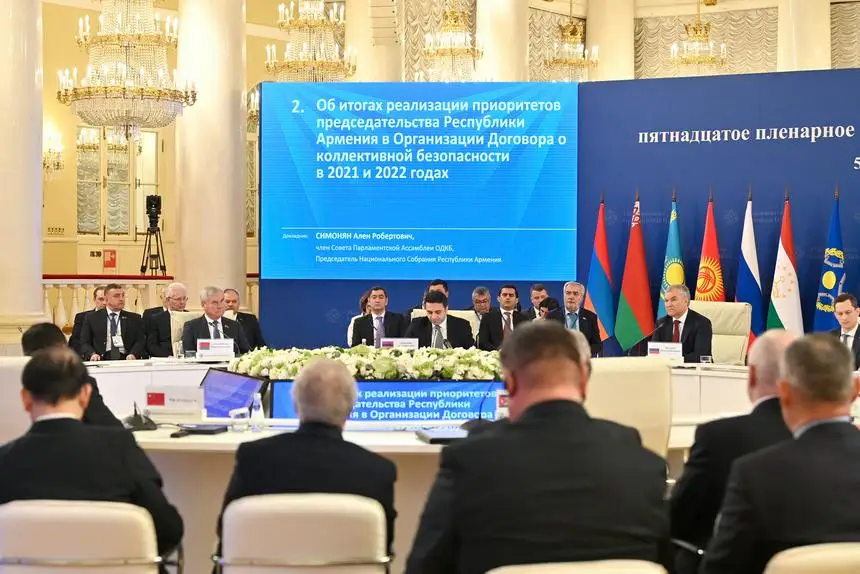Majilis Speaker Koshanov proposes CSTO to enhance fight against terrorism legislatively

The event took place in the Column Hall of the House of Unions in Moscow, Russia.
Addressing the session, Koshanov noted that Kazakhstan will carry on pursuing a balanced, constructive foreign policy, with strategic cooperation with partner countries both bilaterally and multilaterally as the top priority.
He went on to say that since its inception the CSTO has proved to be important and efficient and become an effective mechanism for ensuring security and stability in the region. He also said that crisis and disputes, conflicts and threats still remain in the CSTO space.
«As the Kazakh President said, given the circumstances an open dialogue and collective search for a formula for peace is vital. That’s where the great responsibility lies with the parliamentary dimension of our organization,» said the speaker.

Koshanov added that CSTO parliamentarians actively work on a wide range of issues regarding the organization’s activity, firstly providing a legislative base to address today’s challenges and threats, including tackling international terrorism.
He confirmed the readiness of Kazakhstan to develop a CSTO model law on countering terrorism.
Russian State Duma Chairman Vyacheslav Volodin pointed out that this year marks 30 year since the signing of the Treaty on Collective Security and 20 years since the establishment of the CSTO. He noted that in 16 years the Organization has adopted 72 model laws and recommendations.
During the session, CSTO presidency as well as the outcomes of the November session of the Collective Security Council was discussed.

Also, the draft recommendations on defense and security, social and economic and legal issues, improvement of the law ensuring protection of e-procedures and sovereignty within the CSTO, sources and risks of biological and chemical danger within the area of responsibility of the organization and near its borders were also debated.
Attending the meeting were law makers of the CSTO member countries, including Kazakhstan, Armenia, Belarus, Kyrgyzstan, Russia, and Tajikistan, as well as representatives of China, Iran, and Cuba.
